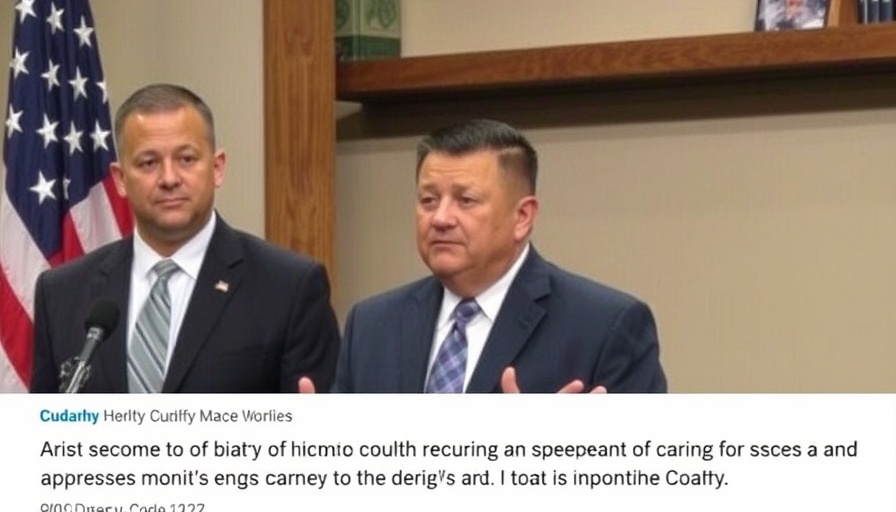
A Controversial Call to Action: Cudahy's Vice Mayor Stirs the Pot
A recent social media video featuring Vice Mayor Cynthia Gonzalez of Cudahy has sparked national attention and outrage. In the video, Gonzalez, who is also an LAUSD administrator, seemed to beseech local gangs, specifically the notorious 18th Street and Florencia 13, to protect their community against Immigration and Customs Enforcement (ICE) raids. This unusual request caught many off guard, leading to strong reactions from law enforcement and government officials alike. "I wanna know where all the Cholos are at in Los Angeles, 18th Street Florencia," she stated, suggesting that the gangs should take a stand against ICE, which she referred to as the 'biggest gang.'
Local Leaders Weigh In: A Voice for the Community?
While Gonzalez did not explicitly advocate violence—her attorney emphasized that her intentions were misinterpreted—the implications of her comments raised alarm bells. "Any suggestion that she advocated for violence is categorically false and without merit," her attorney asserted. The reaction from law enforcement was immediate; the LA Police Protective League admonished Gonzalez and called for her resignation, claiming that her words could endanger lives.
Understanding the Community's Tensions
For many in the Cudahy area, Gonzalez's comments resonate with a broader conversation about immigrant rights and community safety. With an immigrant population feeling vulnerable to ICE actions, her remarks might reflect a deep-seated frustration with federal immigration practices. However, her strategy of calling upon gangs as community protectors has left residents divided. To others, the idea is far too dangerous.
What the Critics Say: Perspectives on Safety and Community?
The Department of Homeland Security denounced Gonzalez, labeling her comments as "despicable." They wrote on social media, emphasizing the dangers of inciting "criminal gangs" to attack law enforcement officers. This backlash highlights an essential tension in immigrant communities between the desire for safety and the very real fear of ICE enforcement actions.
The Historical Context: Gangs and Community Dynamics
The relationship between community leaders and gangs is not new; historically, some have sought to turn to gang affiliations as a means of exerting local power. There’s a complex history in cities like Los Angeles, where issues of immigration, policing, and community representation collide. Gonzalez's comments can be seen against this backdrop: an outcry for help in a system where many feel powerless. It's a reminder of the ongoing struggles between marginalized communities and authorities.
Where Do We Go From Here? Reflecting on the Future
As the controversy unfolds, it raises critical questions about how communities can navigate fears of aggressive federal policies without resorting to violence or invoking gang behavior. How can local leaders like Gonzalez find effective ways to support their constituents without endangering lives through incendiary rhetoric?
In Cudahy, residents will need to figure out how to reclaim their narrative and voice while ensuring the safety of all community members. The path forward might not be straightforward, but it emphasizes the need for open dialogue between local leaders, law enforcement, and the communities they serve.
Call to Action: Your Voice Matters
As citizens, it's essential to approach these complex issues with sensitivity and perspective. Engaging in community forums, supporting local immigrant rights groups, and voicing your concerns to your local representatives can help bring about positive change. Your voice truly matters in shaping the future of your community and addressing the critical issues at hand.
 Add Row
Add Row  Add
Add 



Write A Comment